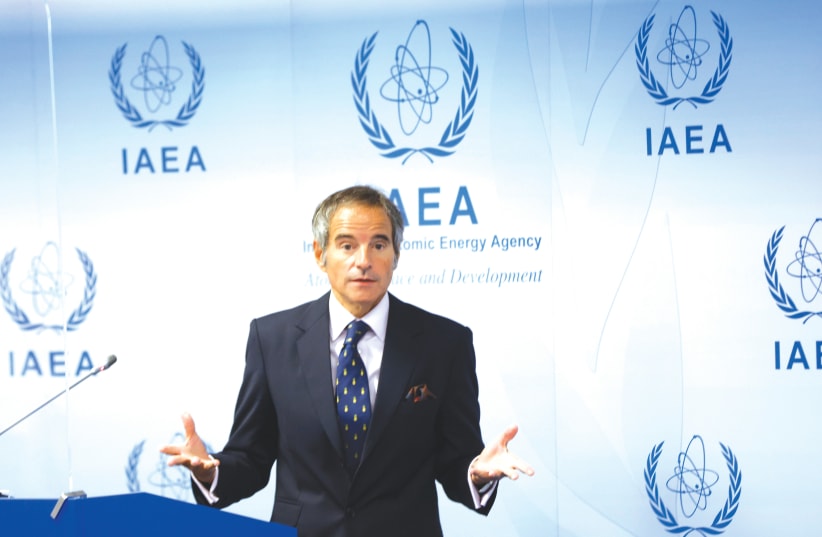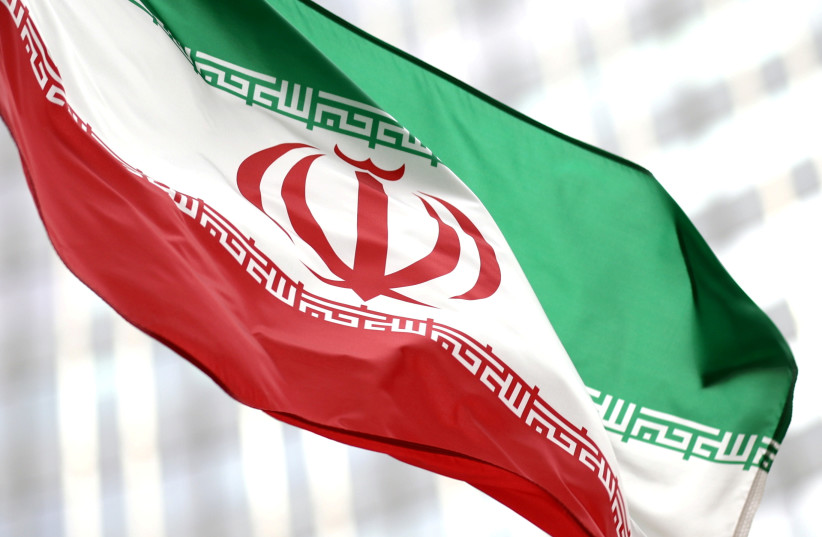IAEA Director-General Rafael Grossi told the agency’s Board of Governors on Wednesday that no deal was reached with Iran during his visit this week to resolve the numerous nuclear issues in dispute.
“Despite my best efforts, these extensive negotiations and deliberations to address Iran’s outstanding safeguards issues, detailed in the two reports, proved inconclusive,” said Grossi.
His report leaves open questions, as nuclear negotiations between Iran and the world powers are set to restart on Monday after a more than a six-month pause.
“I had meetings in Tehran with the vice president of Iran and head of the Atomic Energy Organization of Iran H.E. Mohammad Eslami, and the Minister of Foreign Affairs of Iran H.E. Hossein Amir-Abdollahian,” Grossi said, but that he did not succeed at convincing them to budge on the disputed issues.
“In the absence of regular agency access to its surveillance and monitoring equipment at all facilities and locations in Iran in relation to the JCPOA, the agency considers the temporary agreement I reached with Iran in February 2021 facilitated the maintenance of continuity of knowledge,” the IAEA chief noted. “However, the repeated prolongation of the agreement, that has now been in place for around nine months is becoming a significant challenge to the agency’s ability to restore this continuity of knowledge.”
Grossi also cited the Islamic Republic’s violation of an agreement on September 12 to renew IAEA access to the critical Karaj nuclear site.
“The lack of access to the Karaj workshop has meant that the restoration of surveillance and monitoring at all of Iran’s facilities and locations in relation to the JCPOA could not be completed,” he said. “This is seriously affecting the agency’s ability to restore continuity of knowledge at the workshop, which has been widely recognized as essential in relation to a return to the JCPOA.”
This last statement by Grossi directly connected the possibility of a US return to the JCPOA to Iranian cooperation with the IAEA’s requirements.
Furthermore, he said, “the presence of multiple uranium particles of anthropogenic origin at three locations in Iran not declared to the agency, as well as the presence of isotopically altered particles at one of these locations, is a clear indication that nuclear material and/or equipment contaminated by nuclear material has been present at these locations.”
Grossi said he was concerned “by the incidences of agency inspectors being subjected to excessively invasive physical searches by security officials at nuclear facilities in Iran. I reiterate the call upon Iran to take immediate steps to remedy the situation.”
Asked about Iran’s harassment of his inspectors and whether it will honor the “Safeguards Agreement” it has with the IAEA, Grossi responded: “It is a legal obligation. It is not a favor I am asking.”
Despite Grossi’s frustration, expectations are that the agency’s Board of Governors will punt on condemning Tehran, hoping that next week’s nuclear negotiations will create positive energy that will lead to more openness by the regime to the IAEA.

